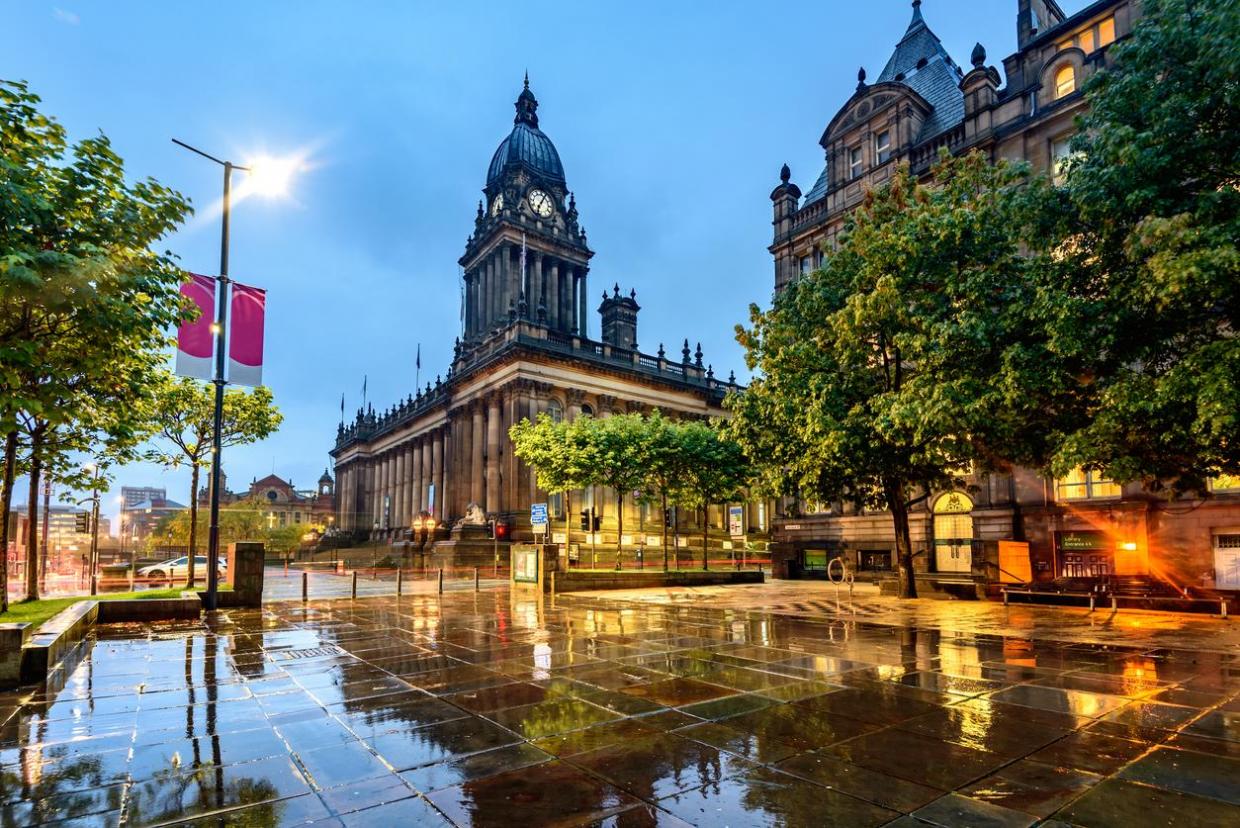Leeds’ bid to be European Capital of Culture looks to be in tatters after the European Commission told the UK government that a British city will not be allowed to host, following the Brexit vote.
Cities across the UK, including Leeds, Belfast, Dundee, Milton Keynes and Nottingham, submitted their bids at the end of October, after the government insisted that they were “ready and fully committed” to hosting the event.
In a letter obtained by POLITICO, however, the European Commission says that the British application should be “discontinued”.
“The participation of the United Kingdom in the European Capital of Culture action will not be possible,” says the letter, written by Martine Reicherts, director-general in the Commission’s education and culture department.

The letter was sent to Sue Owens, the top civil servant at the Department for Culture, Media and Sport.
Previous hosts Istanbul, Reykjavik and Stavanger in Norway have all been European Capital of Culture, despite being outside of the EU bloc.
Reicharts said, however, that the scheme is only open to EU countries, candidates to join the bloc and member of the European Economic Area (EEA) as stipulated in EU regulation 445/2014/EU.
When the UK leaves the EU in 2019, it will therefore cease to qualify after the decision pursue a hard Brexit which would mean leaving the EEA and single market.
Eligibility criteria for #EuropeanCapitalofCulture:
– Cities in EU Member States
– Cities in candidate and EFTA/EEA countries participating in Creative EuropeUK will leave the EU by 29/03/2019, so cannot host the #EuropeanCapitalofCulture in 2023 → https://t.co/SXt5xQrh4K
— European Commission 🇪🇺 (@EU_Commission) November 23, 2017
A spokesperson for the Department of Culture, Media and Sport:
“We disagree with the European Commission’s stance and are deeply disappointed that it has waited until after UK cities have submitted their final bids before communicating this new position to us,” they said.
“The Prime Minister has been clear that while we are leaving the EU, we are not leaving Europe and this has been welcomed by EU leaders. We want to continue working with our friends in Europe to promote the long-term economic development of our continent, which may include participating in cultural programmes.
“We remain committed to working with the five UK cities that have submitted bids to help them realise their cultural ambitions and we are in urgent discussions with the Commission on the matter.”
Leeds’ bid had been seen as a way for the city to set apart its ambition to embrace equality and “tackle the disconnection of a two-tier city”, according to Judith Blake, the leader of the city council.
Under the theme ‘Weaving Together’, organisers were aspiring for 70% of Leeds residents to see at least one event, and to increase arts attendance in its five most disadvantaged areas.
Leeds has spent over four years and more than one million pounds on the entry and the process has involved pledges of funding and support from private and public sector organisations.
Sources suggests that there is huge disappointment and anger that Leeds, and other cities, are being used as Brexit “bargaining chips”.

Hilary Benn, MP for Leeds Central and head of the House of Commons Select Committee for leaving the EU, said that the letter was a “terrible blow” for Leeds.
“It’s particularly extraordinary especially as the bids have just gone in. And to wait until all the work had gone in and turn around and say, ‘You can’t do this’ – it’s shoddy treatment of Leeds and the other cities have worked so hard,” he added.
A spokesperson for the Leeds 2023 bid team said:
“We are aware of a letter from the European Commission regarding the cancellation of the European Capital of Culture competition for all UK bidding cities are seeking urgent clarification from DCMS.”
According to the European Commission website, the scheme aims to highlight “the richness and diversity of cultures in Europe,” to raise the international profile of cities and to boost tourism and cultural activities.
Host cities don’t automatically get money from the EU, but they can receive funding for specific cultural activities or benefit from EU regional funds.
The decision for the UK to host the capital of culture was taken in 2014 and a call for submissions was published in December 2016, after the vote to leave EU.
The respective websites for individual UK cities bids are still live, though the Department for Culture, Media and Sport website does warn that “bidding cities should be aware that the ECOC (European Capital of Culture) title may be subject to the outcome of exit negotiations which have a bearing on the UK’s participation.”
The 2023 hosting would have followed two other UK hosts, Glasgow in 1990 and Liverpool in 2008.
Jonny Chard
(Image: Getty Images/iStockphoto)

